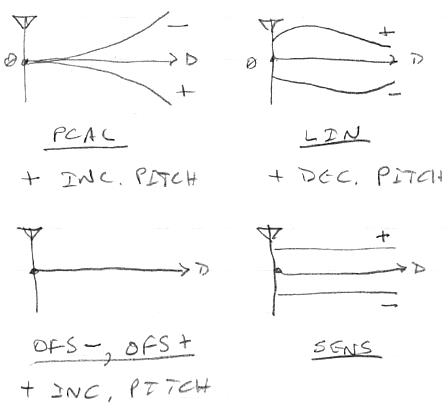People who write things like guitar effects for the PC must have it really hard, as they have to deal with ADC + DAC + I/O buffers + DSP latency < ~10ms.
At least the IO buffers problem has been alleviated by introduction of ASIO in the early 2000's or so, which require special studio-grade audio interfaces, though. There is a driver called "asio4all" which claims to provide an ASIO interface between regular soundcards and pro audio applications. I have not had good experience with it, other than it basically providing this, yeah, but with issues, and not low latency. And how would it, if the original generic soundcard's driver used does not support small buffers.
(Linux has an equivalent for some time of which the name escapes me regularly)
With ASIO, I have seen latency for playback/synthesis-only stuff in the low 1-digit ms range.
I have not tried external "live" signal processing.
In a DAW there is the hypothetical advantage (no idea whether it's used) that you could, for the musican to be able hear the guitar sound while playing, provide a somewhat lower fidelity rendition to keep things real-time.
But as soon as the virgin guitar signal is on disk, nothing matters anymore. For playback (incl. when recording on another track, but listening to already recorded stuff), the system has lots of time to pre-render a generous enough buffer when putting the original guitar signal track through effects, in full fidelity. Not to mention when rendering the mixdown.
So only ever those tracks being recorded at the same time*, and which have real-time effects (like guitar distortion) on them that the musician needs to hear while playing, have this strict requirement.
* tends to be N=1, i.e. each musician recording in his basement and sending stuff to the other band members, these days ![]() Drums will probably not require real-time effects for a drummer being able to play. Can't think of any other many-channel scenario. Maybe 2 for keyboards, but unless someone's playing against an echo time for effect (which is cheap), they too probably don't need real-time effects while recording.
Drums will probably not require real-time effects for a drummer being able to play. Can't think of any other many-channel scenario. Maybe 2 for keyboards, but unless someone's playing against an echo time for effect (which is cheap), they too probably don't need real-time effects while recording.
I don't know how much guitar amp software plugins are actually used for high end recording, vs. things like the Kemper amp. One could record both at the same time also, I guess - the original guitar signal, and the distorted one, and wire things up for "re-amping" (which is a funny term as "amplification" is just a 1-cycle mul op on a CPU and not the purpose of that process at all ![]() ), should one at some point not be pleased anymore with the amp settings.
), should one at some point not be pleased anymore with the amp settings.



